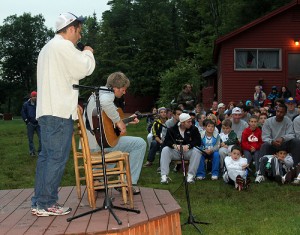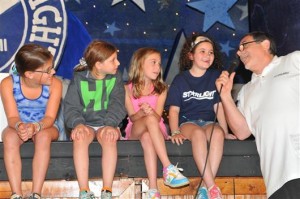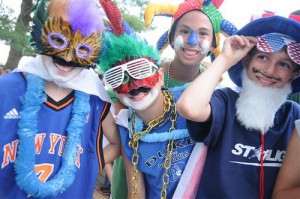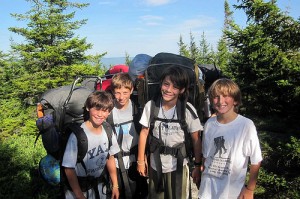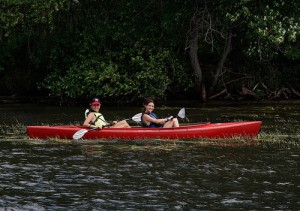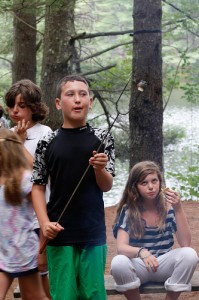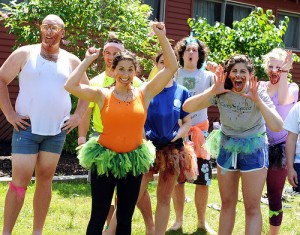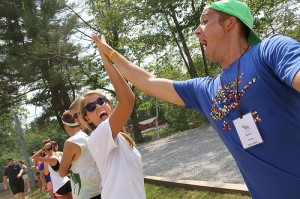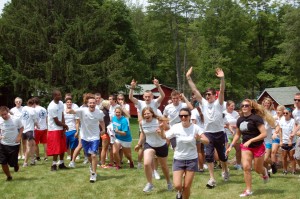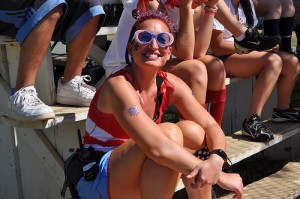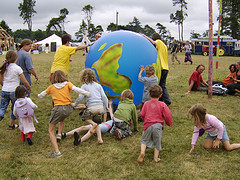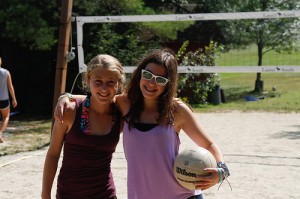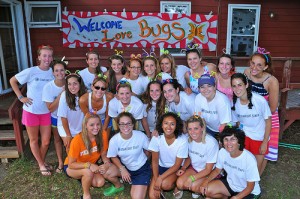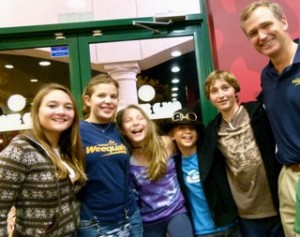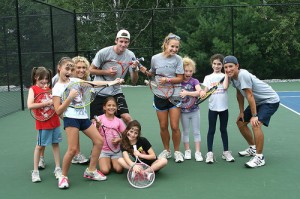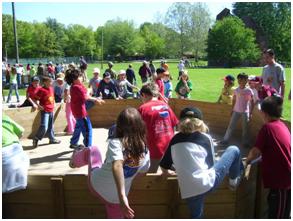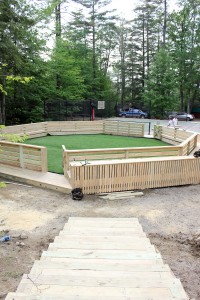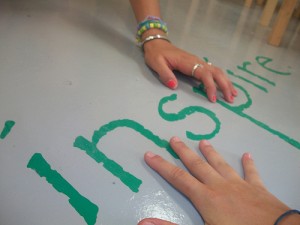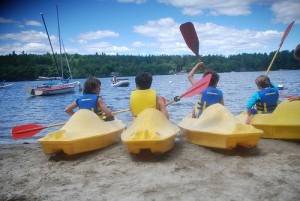As part of iconic America, many American summer camps are steeped in rich histories. America’s Finest Summer Camps are no exception. We thought we would take a minute to share a brief history of each camp with you.
Camp Laurel
 Camp Laurel was founded in 1949 and has been in continuous operation ever since. Its original site was on Lake Awosting, New York. During this period, the camp was under the co‑direction of Mel and Bette Archard and John and Alice Harrison. In the fall of 1965 the camp moved to its present site on Echo Lake in Mt. Vernon, Maine. Camp Laurel opened at its new site on July 1, 1966. In 1974 Ron Scott began working for Camp Laurel on a full‑time basis, and in 1978 Ron and Ann joined Mel and Bette as Directors. In 1979 Ron and Ann purchased Camp Laurel and assumed the roles of Owners and Directors. In 1994, after spending three summers as Co-Director, Keith Klein purchased Camp Laurel and has served as Owner and Director since that time. Jem Sollinger, a long-time camper and counselor, joined Keith as Co-Director in 2002. In 2007, Jem and his wife, Debbie, assumed the directorship of Laurel. Keith maintains an active role as Director and spends his summers on Echo Lake, Maine along with Jem and Debbie.
Camp Laurel was founded in 1949 and has been in continuous operation ever since. Its original site was on Lake Awosting, New York. During this period, the camp was under the co‑direction of Mel and Bette Archard and John and Alice Harrison. In the fall of 1965 the camp moved to its present site on Echo Lake in Mt. Vernon, Maine. Camp Laurel opened at its new site on July 1, 1966. In 1974 Ron Scott began working for Camp Laurel on a full‑time basis, and in 1978 Ron and Ann joined Mel and Bette as Directors. In 1979 Ron and Ann purchased Camp Laurel and assumed the roles of Owners and Directors. In 1994, after spending three summers as Co-Director, Keith Klein purchased Camp Laurel and has served as Owner and Director since that time. Jem Sollinger, a long-time camper and counselor, joined Keith as Co-Director in 2002. In 2007, Jem and his wife, Debbie, assumed the directorship of Laurel. Keith maintains an active role as Director and spends his summers on Echo Lake, Maine along with Jem and Debbie.
Camp Starlight
Founded in 1947 by the Schmierer family, 2011 marks Camp Starlight’s 65th year of making tradition, spirit, friendship, adventure,  family, and fun. These are the words used by campers, parents, and staff to define their experiences and memories of Camp Starlight. Located in Starlight, Pennsylvania, just two and a half hours northwest of New York City, a drive up the mile long road brings you to the 285 acre brother/sister campus with its own private lakes and surrounded by the “endless mountains” of Pennsylvania.
family, and fun. These are the words used by campers, parents, and staff to define their experiences and memories of Camp Starlight. Located in Starlight, Pennsylvania, just two and a half hours northwest of New York City, a drive up the mile long road brings you to the 285 acre brother/sister campus with its own private lakes and surrounded by the “endless mountains” of Pennsylvania.
A glimpse at the endless rows of bunk plaques inside the Dining Room will provide any visitor with an instant glimpse of what a special place Camp Starlight has been to campers and staff alike in its 65 years of existence. David and Allison Miller purchased Camp Starlight in 1999 and are now in their 13th year of serving as its Owners/Directors.
Camp Laurel South
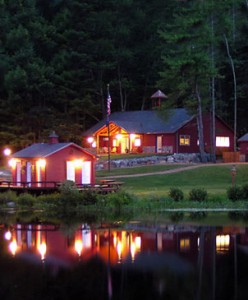 Laurel camping was founded in 1949 and Camp Laurel operated its first summer in 1950 under the direction of the Archard and Harrison families. In 1974, Ron and Ann Scott joined Ann’s parents, Mel and Bette Archard, as Directors. In 1979 Ron and Ann purchased Laurel and assumed the roles of Owners and Directors. In 1994, Keith Klein purchased Camp Laurel from the Scotts. Keith owns Laurel today along with his partners, Jem and Debbie Sollinger. The Scotts purchased the former Dr. Johnson’s Camps in 1992 at its site on Crescent Lake in Casco, Maine, and renamed it Laurel South. Laurel South operated its first summer in 1993 under the leadership of Roger and Dagni Christian. In the fall 0f 1998, Roger and Dagni, along with Keith, took ownership of Laurel South and continue their partnership to this day.
Laurel camping was founded in 1949 and Camp Laurel operated its first summer in 1950 under the direction of the Archard and Harrison families. In 1974, Ron and Ann Scott joined Ann’s parents, Mel and Bette Archard, as Directors. In 1979 Ron and Ann purchased Laurel and assumed the roles of Owners and Directors. In 1994, Keith Klein purchased Camp Laurel from the Scotts. Keith owns Laurel today along with his partners, Jem and Debbie Sollinger. The Scotts purchased the former Dr. Johnson’s Camps in 1992 at its site on Crescent Lake in Casco, Maine, and renamed it Laurel South. Laurel South operated its first summer in 1993 under the leadership of Roger and Dagni Christian. In the fall 0f 1998, Roger and Dagni, along with Keith, took ownership of Laurel South and continue their partnership to this day.
While Laurel South is known as a first-rate facility, Roger, Dagni and Keith have always maintained that it is the people who make Laurel South the special place it is today. Every camper and counselor has left an impression on our camp and contributed to the rich tradition we enjoy. As we speak with Laurel South alumni, we often hear stories of Spirit Days, Council Fires, Carnival, S- Day’s, Ohana, Socials…the list goes on and on. The overriding theme that ties each of these stories together is memories. Memories of friendships and fun which last long after the summers spent at camp.
Camp Weequahic
Weequahic was founded in 1953 by Art and Mollie Lustig and operated under the directorship of the same family for more than five 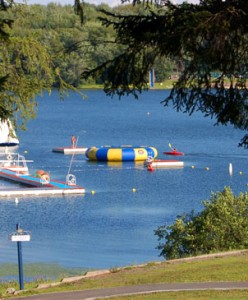 decades. The ideal with which camp was started – to provide the best in camping –still holds true today, almost 60 years after our first campers spent their summer with us in Lakewood, Pennsylvania.
decades. The ideal with which camp was started – to provide the best in camping –still holds true today, almost 60 years after our first campers spent their summer with us in Lakewood, Pennsylvania.
Weequahic is far more than the facilities and scenic beauty of over 100 acres located in Wayne County, although these are certainly part of what has made Weequahic so special. It’s the people and their relationships that make Weequahic what it is. Our campers learn new activities every year, but what draws them back is our warm, caring environment… an environment in which friendships are encouraged and where self-sufficiency and tolerance in learning to live with others is taught.
The current Directors, Cole and Kate Kelly, work tirelessly to insure that the Weequahic motto, which has been maintained for almost 60 years, continues to be:
“Where Caring is a Tradition.”
So there you have it. If you’ve been doing your math, then by now you’ve figured out that, combined, we have 200 years of experience in the camping! For America’s Finest Summer Camps, history is our past, present, and future.
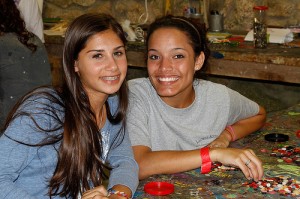 For older campers, one of the most profound and lasting advantages of camp is the opportunity they have to focus on being boys and girls. Many summer camps also strengthen the safety of the camp setting by offering exclusive programs that help teenage campers gain a better understanding about how to best grasp the transition from being girls to being women and from being boys to being men. Such programs provide non threatening forums for teenage girls and boys to address sensitive issues and topics as well as help them prepare for their later teen years as they near college and adulthood. These programs also have their own rites and traditions that serve as progress points for individuals as well as groups and as the basis for the point at which camp friends become a lifelong support network.
For older campers, one of the most profound and lasting advantages of camp is the opportunity they have to focus on being boys and girls. Many summer camps also strengthen the safety of the camp setting by offering exclusive programs that help teenage campers gain a better understanding about how to best grasp the transition from being girls to being women and from being boys to being men. Such programs provide non threatening forums for teenage girls and boys to address sensitive issues and topics as well as help them prepare for their later teen years as they near college and adulthood. These programs also have their own rites and traditions that serve as progress points for individuals as well as groups and as the basis for the point at which camp friends become a lifelong support network.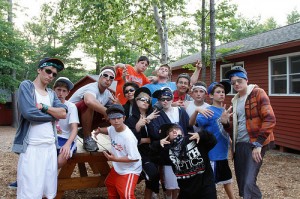 of camp, their respective program areas, and their respective activities. However, they come together for meals and many evening camp activities. Many believe this approach is a bit part of why children are afraid to relax and even be silly while at camp. Being with children of the same gender frees them of stereotypes that may be placed on them elsewhere. Spending exclusive time with other girls or boys creates a non threatening environment, particularly for adolescents and early teens already going through awkward changes as they begin to maneuver the sometimes tumultuous teen years. Girls can get down and dirty in an intense game of flag football and boys don’t feel the need to look over their shoulders while bouncing around in the camp’s gymnastics area or putting together some choreographed moves in the dance studio because it’s all just a part of camp.
of camp, their respective program areas, and their respective activities. However, they come together for meals and many evening camp activities. Many believe this approach is a bit part of why children are afraid to relax and even be silly while at camp. Being with children of the same gender frees them of stereotypes that may be placed on them elsewhere. Spending exclusive time with other girls or boys creates a non threatening environment, particularly for adolescents and early teens already going through awkward changes as they begin to maneuver the sometimes tumultuous teen years. Girls can get down and dirty in an intense game of flag football and boys don’t feel the need to look over their shoulders while bouncing around in the camp’s gymnastics area or putting together some choreographed moves in the dance studio because it’s all just a part of camp.
 570-798-9831
570-798-9831
